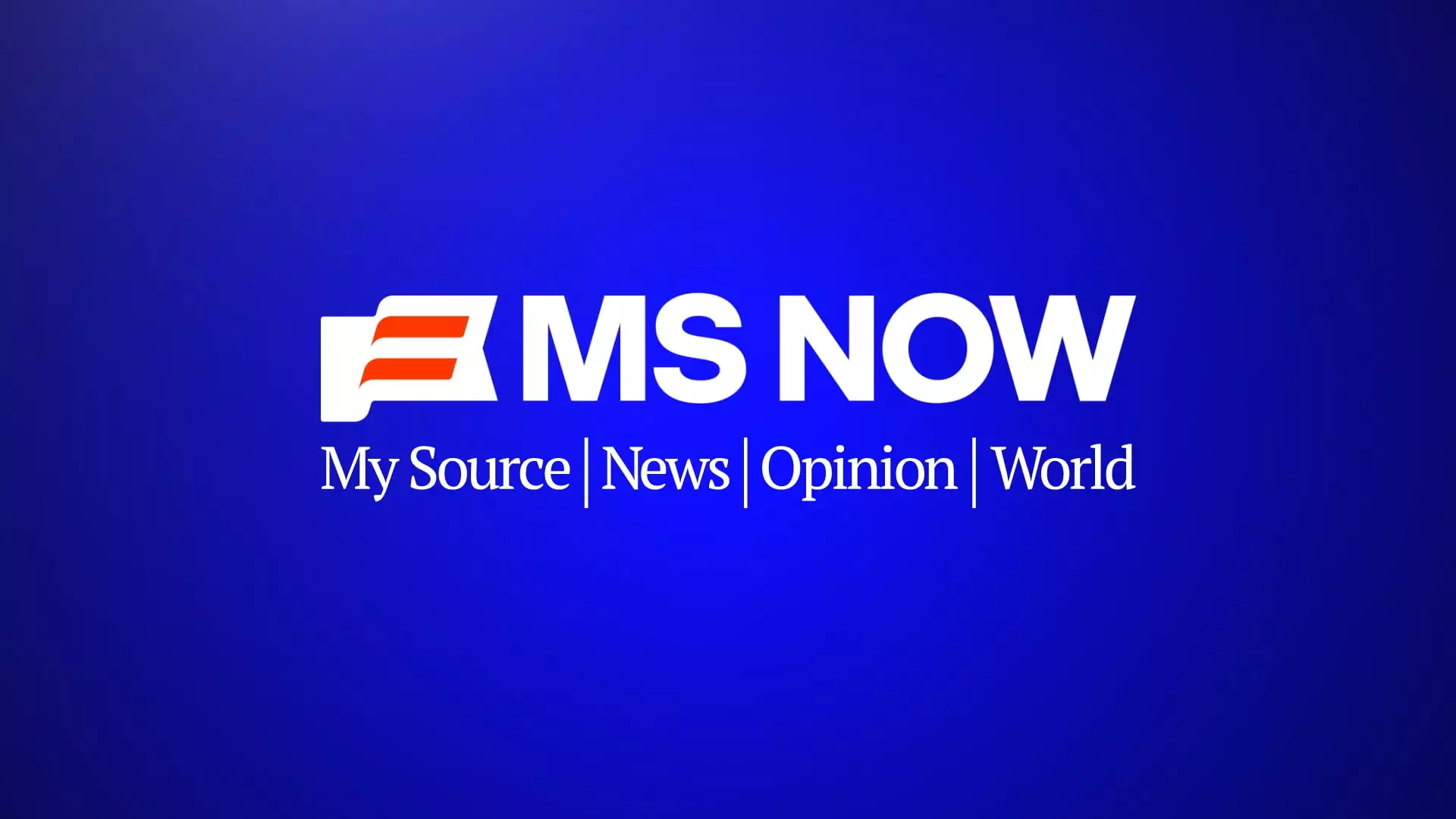In an era where the media landscape is fiercely competitive and heavily scrutinized, corporate branding is often seen as the backbone of a network’s identity. The recent announcement that MSNBC will undergo a significant rebranding, including a name change and the removal of its iconic peacock logo, signals more than just cosmetic updates—it suggests a calculated repositioning. While the network’s leadership assures the public that quality journalism remains unchanged, the strategic divergence from NBCUniversal’s traditional brand hints at future developments aimed at asserting independence, all while catering to a specific ideological niche.
This move is emblematic of a broader industry trend where media outlets seek to differentiate themselves to capture niche audiences more effectively. The decision to rebrand MSNBC to “My Source News Opinion World” or “MS Now” seems designed to cultivate a clear identity—one that emphasizes opinion-driven content and partisan alignment. Such branding choices inevitably raise questions about the future of objective journalism, especially considering the network’s history of ideological leaning. If the stated aim is to establish the channel as a more independent, opinion-focused platform, it might succeed in attracting viewers frustrated with the perceived biases of other networks. However, it also risks further polarization and entrenched partisanship, making balanced reporting more elusive.
Nevertheless, the shift reflects an internal acknowledgment that MSNBC’s separation from NBC News isn’t just about ownership structure but also about perception. The renaming coincides with extensive new hiring and the creation of an autonomous Washington D.C. bureau, shifting power dynamics within the company hierarchy. This very move signals the network’s desire to carve out a distinct voice—potentially at the expense of traditional journalistic standards—aimed at mobilizing a specific demographic that values opinion and ideological clarity over purely informational content.
The Impact on the News Ecosystem and Public Trust
Critically, this rebranding isn’t happening in isolation. It’s part of a strategic realignment that includes branding changes across Versant’s portfolio, including CNBC and other properties that will soon discard the familiar peacock logo. While this can be interpreted as an effort to solidify a unified corporate identity under Versant’s new corporate umbrella, it also raises concerns about consistency and public perception. Will viewers see these rebrands as a dilution of trust or simply a savvy marketing maneuver? The answer likely depends on how transparently the company communicates its intentions and the integrity with which it handles news dissemination.
A more insidious concern is the potential shift in journalistic standards. The claim that MSNBC’s core values will remain intact despite the name change is reassuring yet somewhat superficial. History shows that branding often correlates with editorial focus, tone, and even the types of stories prioritized. If the new MSNBC becomes a vehicle for opinion and ideological reinforcement rather than fair reporting, the risk to public discourse is profound. Such a trend could contribute to increased societal polarization, undermining the essential role of the media as a watchdog.
From a center-right perspective, this transition might be viewed with skepticism but also with cautious acknowledgment. It’s tempting to see the rebranding as a defensive move against rising partisan media where ideological echo chambers have become the norm. By establishing a “distinct” identity, the network may aim to appeal to voters who are fed up with the perceived left-leaning bias in mainstream outlets, offering them a platform that aligns more closely with their worldview. Yet, this shift also demands responsibility—branding can’t disguise the underlying shift in approach. If MSNBC’s new identity sacrifices journalistic rigor for opinion, it risks becoming just another partisan outlet, diminishing its credibility over time.
The Political Consequences of a Rebranding Strategy
This move also signifies an important moment in the ongoing battle for influence within the media landscape. As MSNBC prepares for its rebranding, it’s clear the network aims to tighten its ideological stance, possibly offering a more unapologetically conservative or center-right perspective, as an alternative to the more entrenched left-leaning competitors. While this can be viewed as a natural societal response—markets seek to fill gaps—there’s a fine line between presenting a legitimate counterpoint and fueling divisiveness.
The planned marketing offensive accompanying the rebrand suggests a desire to reshape perceptions and galvanize a specific segment of viewers. If successful, this could shift the power dynamics in cable news, making MSNBC a more formidable player among conservatives and moderates alike. Still, it raises questions about media responsibility; in striving for viewers, networks must avoid crossing into sensationalism or propagandistic tactics that ultimately harm democratic conversation.
The impending rebrand of MSNBC is a calculated move, one that is fraught with potential but also significant risks. It embodies a delicate balancing act—between asserting independence, appealing to a targeted demographic, and maintaining journalistic credibility. Only time will tell whether this strategic pivot will strengthen the network’s position or accelerate the decline of objective journalism in favor of opinion-based echo chambers. What remains certain is that, in a polarized society, the way media brands choose to reinvent themselves today will echo loudly into the political and social fabric of tomorrow.

